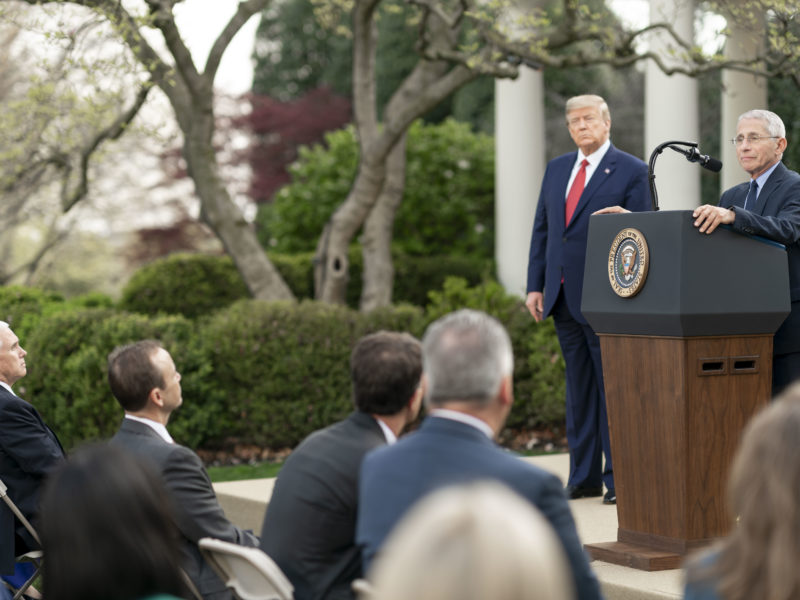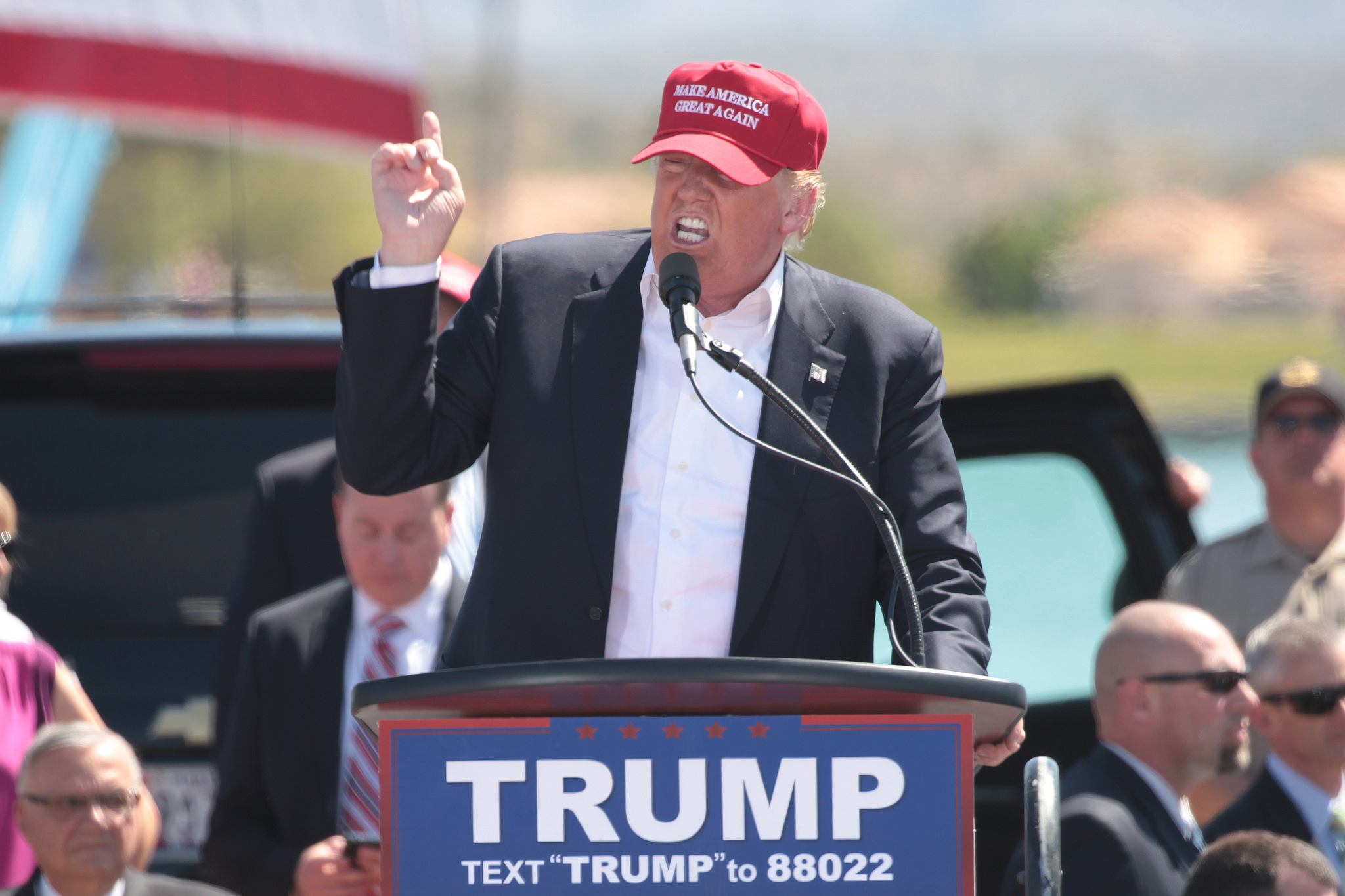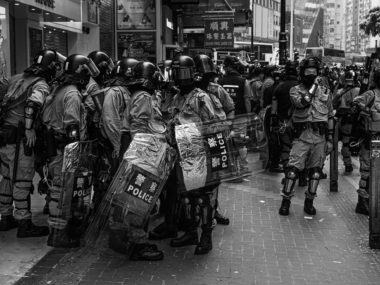Guest post by Chiara Ruffa and Kristine Eck
Democracy theorists have long explored the tensions between experts and elected officials—asking who should make which decisions in public governance. On the one hand, experts have specialized, highly technical knowledge that is essential to solving complex problems; on the other hand, they have not been elected to make decisions. The latter can be both good and bad: because experts are not accountable to citizens, they are insulated from public pressure. Elected leaders, on the other hand, may be tempted to pander to constituents or interest groups, and have less technical expertise on which to base decisions.
The tensions between experts and elected officials have never been more prominent, as governments seek to choose the best policies to prevent deaths from the COVID-19 pandemic. In Sweden, where we live, the Swedish Public Health Agency is still directing Swedish policy responses with regard to reducing transmission. These experts have thus far decided to leave Swedish elementary and middle schools open (the only EU country to do so), have not shuttered restaurants or ski resorts, nor implemented more severe quarantine restrictions on citizens’ freedom of movement. While there has been some criticism, public support for these measures appears widespread.
In neighboring Denmark, the experts at the Danish Health Authority called for a similar approach as in Sweden. But the Minister of Health overruled the Health Authority on the basis of discussions with international experts at the WHO. In a recent article, he expressed satisfaction at having had the courage to act against the advice of his own experts.
These discussions about the appropriate locus of decision-making in the COVID-19 crisis are reminiscent of the debate about civil-military relations. In democracies, civilian authorities—the politicians—tell the military what to do. But while they have the last word, politicians rely to varying extents on the military expertise in conducting military operations.
Where professional advice stops and political decision-making begins is murky and varies across countries. Research identifies two modes of interaction between the civilians and the military. In the professional supremacist model, even if the ultimate decision is taken by civilian leadership, the military authority has considerable room to maneuver. In this model, it is important that during times of crisis the military is given adequate space, in order to prevent civilians from micromanaging and mismanaging.
The second model is the civilian supremacist model, wherein military advice is taken seriously, but civilians make strategic decisions and may go against military advice. Research within civil-military relations is ambivalent about which model best produces desired results, such as winning a war, defending a country or mitigating the effects of a crisis. They all agree, however, that politicians should have the last word.
We should, of course, be cautious in drawing parallels between militaries and public health authorities. After all, unlike militaries, public health authorities do not have the power to overthrow the government. But expert epidemiologists work with complex problems characterized by high levels of uncertainty that bear a resemblance to the “fog of war.” They also share a responsibility to be at the service of society and a sense of corporateness.
As the COVID-19 crisis is making clear, public support for experts versus civilian decision-making depends on whether they trust the information supplied by these different sources. This dynamic is particularly acute in the US, where a considerable portion of the public is concerned about incorrect medical information coming from President Trump, and closely watches for the presence of National Institute of Allergy and Infectious Diseases Director Anthony Fauci at press conferences for assurance that experts are still influencing decisions.
The civil-military debate shows that the civil-military equilibrium can be country-specific, the result of deeply rooted traditions. It also demonstrates that expert knowledge has underlying political implications that cannot be discounted, no matter how hard experts may try to be apolitical.
Importantly, no single set of expertise is sufficient to address a pandemic. While medical and epidemiological expertise is predominant, decision making also requires expertise in other fields such as behavioral psychology (to understand whether and under what conditions citizens will obey government directives), social science (on power relations and social polarization), and other domains where policies may cause negative effects (like economics and education). Weaving together these different knowledge sets, balancing costs and benefits across them, requires a general perspective. Experts—particularly epidemiologists—are key in this time of crisis but ultimately it is the job of politicians to synthesize these different calculations and weigh them in the interests of the citizens to whom they are accountable.
The COVID-19 pandemic illustrates the importance of choosing leaders who are sufficiently competent to undertake a task of this magnitude and, likewise, experts who are sufficiently aware of the political implications of their expert advice. Wherever the locus of decision-making is centered, it is imperative that sufficient information is provided about how it was reached so that the public has confidence in the decision and will follow the government’s directives.
Chiara Ruffa is an academy fellow at the Department of Peace and Conflict Research at Uppsala University and an associate professor in War Studies at the Swedish Defense University. Kristine Eck is an Associate Professor at the Department of Peace and Conflict Research at Uppsala University.






1 comment
I agree that politicians need to synthesize all of the different calculations. They have experience with helping people and communities. So they can get what the experts say done.